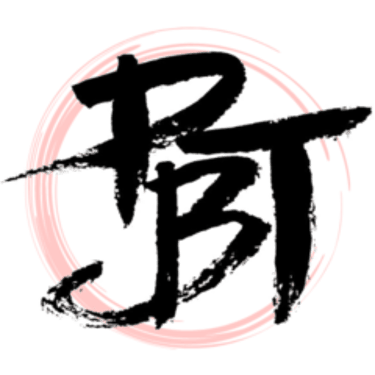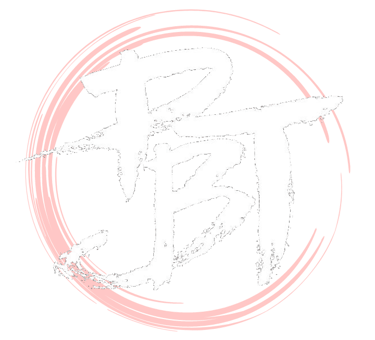Child protection policy
Download a PDF version of this policy. To request another format, email safeguarding@pbtheatricals.org.
Current version approved on 15th July 2025.
PB Theatricals Youth Theatre (PB Theatricals) recognizes its duty of care under the Children and Young Persons Act 1963, the Child (Performances) Regulations 1968, the Protection of Children Act 1999 and the Criminal Justice and Court Services Act 2000.
PB Theatricals believes that children and young people should never experience abuse of any kind. PB Theatricals also believes we have a responsibility to promote the welfare of all children and young people, to keep them safe and to practise in a way which protects them.
To uphold PB Theatricals to these beliefs, we will work by these key principles:
The welfare of the child is paramount.
All children, whatever their age, culture, disability, gender, language, racial origin, religious beliefs and/or sexual identity have the right to protection from abuse.
All suspicions and allegations of abuse should be taken seriously and responded to swiftly and appropriately.
All members and employees of the society should be clear on how to respond appropriately.
PB Theatricals will seek to keep children and young people safe by ensuring that:
The duty of care to children will always be put first.
All children will be treated equally and with respect and dignity.
Our core principles of involvement in the arts will be maintained through an open and honest dialogue with children and young people
Creating and maintaining an anti-bullying environment within the rehearsal and performance space
All adult members of the society provide a positive role model for dealing with other people.
Action will be taken to stop any inappropriate verbal or physical behaviour.
It will keep up-to-date with health & safety legislation.
It will keep informed of changes in legislation and policies for the protection of children.
It will undertake relevant development and training.
It will hold a register of every child involved with the society and will retain a contact name and number close at hand in case of emergencies.
The society has child protection procedures which accompany this policy. This policy should also be read in conjunction with the society’s Equal Opportunities Policy and Health & Safety Policy.
This policy will be regularly monitored by the Executive Committee of the society and will be subject to annual review.
Child Protection Procedures
Responsibilities of the Society
At the outset of any production involving children the society will:
Identify during the auditions the person with designated responsibility for child protection.
Engage in effective recruitment of chaperones and other individuals with responsibility for children, including appropriate vetting.
Ensure that children are supervised at all times
Know how to get in touch with the local authority social services, in case it needs to report a concern.
Parents
PB Theatricals is indebted to all parents and carers involved in our productions. We believe it is important to ensure that parents are encouraged to be involved in the activities of the society.
All parents will have an opportunity to view and receive PB Theatrical’s Child Protection Policy and Procedures.
All parents have the responsibility to collect (or arrange collection of) their children after rehearsals or performances. It is NOT the responsibility of the society to take children home.
Parents must make it clear what arrangements are being made to take their children home to the Registration Officer and/or attending chaperones.
Unsupervised Contact
PB Theatricals will attempt to ensure that no adult has unsupervised contact with children.
If possible there will always be two adults in the room when working with children.
If unsupervised contact is unavoidable, steps will be taken to minimize risk. For example, rehearsals take place in designated rehearsal rooms in high use public areas in our rehearsal buildings.
If it is predicted that an individual is likely to require unsupervised contact with children, he or she may be required to obtain a criminal record disclosure.
Physical Contact
All adults will maintain a safe and appropriate distance from children.
Adults will only touch children when it is absolutely necessary in relation to the particular activity.
Adults will seek the consent of the child prior to any physical contact and the purpose of the contact shall be made clear.
Managing sensitive information
Consent forms will be supplied at auditions to allow parents and children the opportunity to opt out of any photographs or videos taken during rehearsals and performances.
Permission will be sought from the parents for use of photographic material featuring children for promotional or other purposes.
The society will ensure confidentiality in order to protect the rights of its members, including the safe handling, storage and disposal of any sensitive information such as criminal record disclosures.
Suspicion of abuse
PB Theatricals has a dedicated individual with responsibility for child protection. If you see or suspect abuse of a child while in the care of PB Theatricals, please make this known to the individual. If there is suspicion that the person with responsibility for child protection is the source of the problem, you should make your concerns known to the Chair. Both individuals will be identified at auditions and contact details will be provided.
Please make a note for your own records of what you witnessed as well as your response, in case there is follow-up in which you are involved.
If a serious allegation is made against any member of the society, chaperone, venue staff etc., that individual will be suspended immediately until the investigation is concluded. The individual will be excluded from the theatre, rehearsal rooms etc. and will not have any unsupervised contact with any other children in the production.
Disclosure of abuse
There are recommended steps to take If a child confides in you that abuse has taken place:
Remain calm and in control but do not delay taking action.
Listen carefully to what has been said. Allow the child to tell you at their own pace and ask questions only for clarification. Don’t ask questions that suggest a particular answer.
Don’t promise to keep it a secret. Use the first opportunity you have to share the information with the person with responsibility for child protection. Make it clear to the child that you will need to share this information with others. Make it clear that you will only tell the people who need to know and who should be able to help.
Reassure the child that ‘they did the right thing’ in telling someone.
Tell the child what you are going to do next.
Speak immediately to the person with responsibility for child protection. It is that person’s responsibility to liaise with the relevant authorities, usually social services or the police.
As soon as possible after the disclosing conversation, make a note of what was said, using the child’s own words. Note the date, time, any names that were involved or mentioned, and who you gave the information to. Make sure you sign and date your record.
Recording
In all situations, including those in which the cause of concern arises from a disclosure made in confidence, the details of an allegation or reported incident will be recorded, regardless of whether or not the concerns have been shared with a statutory child protection agency.
An accurate note shall be made of the date and time of the incident or disclosure, the parties involved, what was said or done and by whom, any action taken to investigate the matter, any further action taken e.g. suspension of an individual, where relevant the reasons why the matter was not referred to a statutory agency, and the name of the persons reporting and to whom it was reported.
The record will be stored securely and shared only with those who need to know about the incident or allegation.
Rights and Confidentiality
If a complaint is made against a member of PB Theatricals, he or she will be made aware of his rights under the society’s disciplinary procedures
No matter how you may feel about the accusation, both the alleged abuser and the child who is thought to have been abused have the right to confidentiality under the Data Protection Act 1998. Remember also that any possible criminal investigation could be compromised through inappropriate information being released.
In criminal law the Crown, or other prosecuting authority, has to prove guilt and the defendant is presumed innocent until proven guilty.
Accidents
To avoid accidents, chaperones and children will be advised of “house rules” regarding health and safety and will be notified of areas that are out of bounds.
If a child is injured during rehearsal time and performance, immediate care will be sought and the injury recorded in PB Theatrical’s accident book. This record will be countersigned by the person with responsibility for child protection.
If a child joins the production with an obvious physical injury a record of this will be made in the accident book. This record will be countersigned by the person with responsibility for child protection. This will act as a record that the child did not sustain the injury while under the care of PB Theatricals.
Criminal Record Disclosures
If the society believes it is in its best interests to obtain criminal record disclosures for chaperones or other personnel, it will inform the individual of the necessary procedures and the level of disclosure required. A Standard disclosure will apply for anyone with supervised access to children. An Enhanced disclosure will be required for anyone with unsupervised access.
The society will have a written code of practice for the handling of disclosure information.
The society will ensure that information contained in the disclosure is not misused.
Chaperones
Chaperones will be appointed by PB Theatricals for the care of children during the production process. The chaperone by law should exercise the care which a good parent might be reasonably expected to give to a child.
Unless already well known to PB Theatricals, potential chaperones will be required to supply photographic proof of identity (eg. passport, driving licence) and two references from individuals with knowledge of their previous work with children, unless already well known to the society. They will also be asked to sign a declaration stating that there is no reason why they would be considered unsuitable to work with children.
Chaperones will be made aware of the society’s Child Protection Policy and Procedures.
Chaperones will not usually have unsupervised access to children in their care. If unsupervised access is unavoidable a criminal record disclosure will be sought.
Where chaperones are not satisfied with the conditions for the children, they should bring this to the attention of the producer and/or child protection officer.
If a chaperone considers that a child is unwell or too tired to continue, the chaperone must inform the producer and not allow the child to continue.
Children will be supervised at all times except when using separate dressing rooms.
Chaperones will be aware of where the children are at all times.
Children are not to leave the theatre unsupervised by chaperones unless in the company of their parents or if a permission form has been provided by the parent.
Chaperones should be aware of the safety arrangements and first aid procedures in the venue, and will ensure that children in their care do not place themselves and others in danger.
Chaperones should ensure that any accidents are reported to and recorded by the society.
If someone different is at the rehearsal or performance venue to collect the child, confirmation must be made in advance with the parents.
Children should be signed out when leaving and a record made of the person collecting.
If a parent has not collected the child, it is the duty of the chaperone to stay with that child and ensure that appropriate arrangements are made to take them home.




